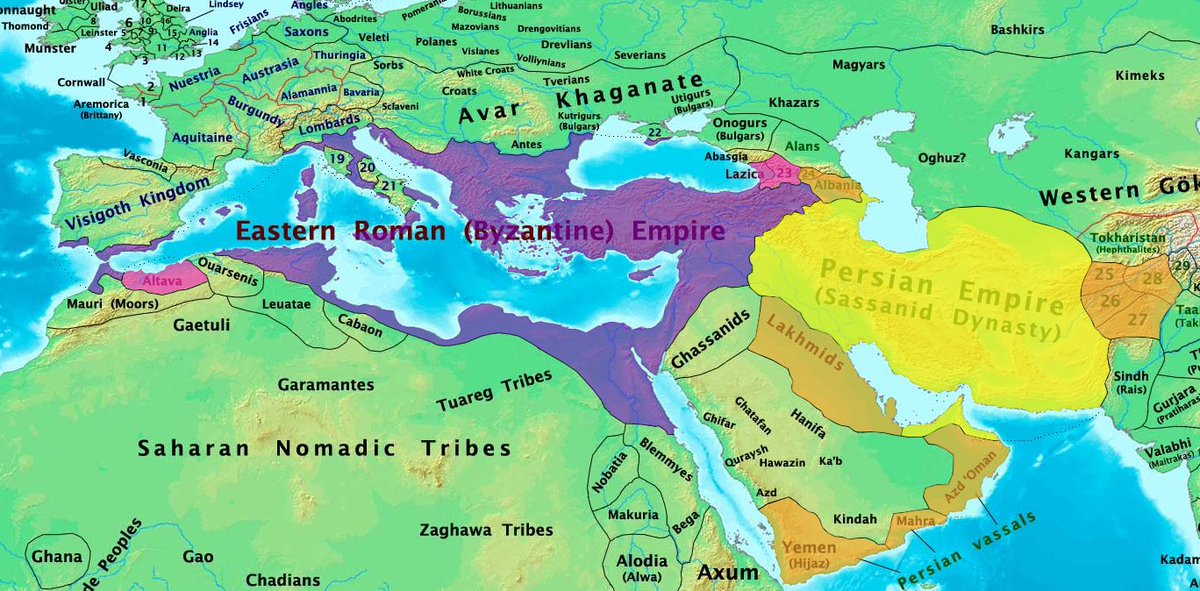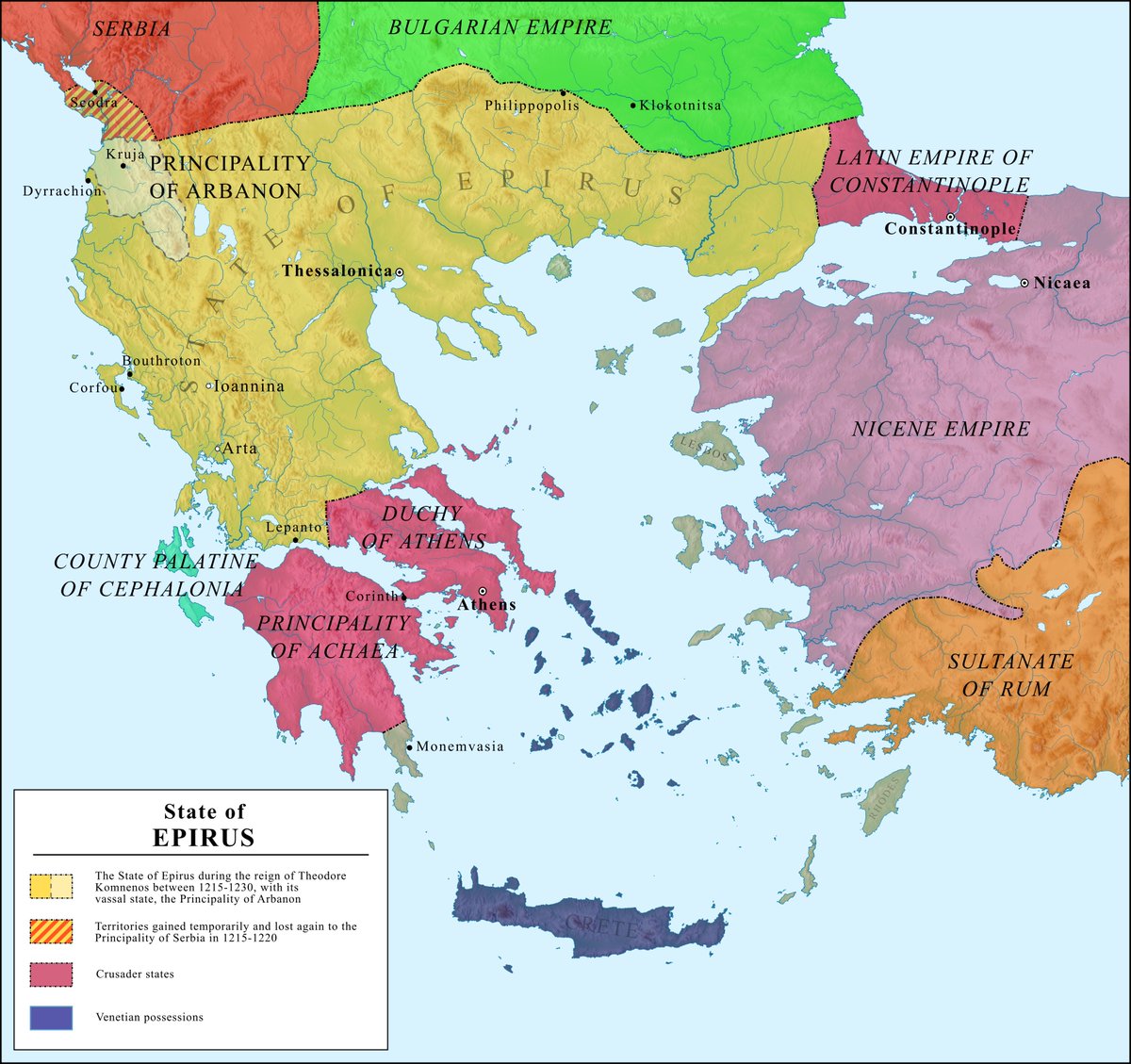
A broken Empire, finally breaks away from its past.
A showdown of civilizations.
A time when even religions were at crossroads.
Story in the evening ...
A showdown of civilizations.
A time when even religions were at crossroads.
Story in the evening ...
https://twitter.com/Arby_K/status/1451375265049841667
Hērakleios was born around 575 to Hērakleios and Epiphania. It is likely Hērakleios had Armenian ancestry, though the Kingdom of Armenia had been divided up by the Roman Empire and Sasanian Persian Empire over a century earlier. 1/10 

The Roman Empire had seen a period of expansion and decline before Hērakleios was born and was in deep financial stress. Mauricius, who became Augustus in 582 and married his predecessor's daughter, was able to reverse some of the Empire's earlier military defeats. 2/10 



In 602, Mauricius faced a rebellion led by Phocas. Phocas got the upper hand and though Mauricius and his sons fled the Roman capital, they were captured and later executed. The senior Hērakleios had in the meantime become the Exarch of Africa. 3/10 

Phocas turned out to be unpopular. He also had to deal with a new war against the Sasanians. Mauricius had helped Shah Khosrow gain a firm hold on the Sasanian throne and his family's execution was a convenient excuse to push Persian boundary westwards. 4/10 

In 608, Hērakleios rebelled against Phocas. In 610, the younger Hērakleios arrived at Constantinople by sea against Phocas on Senate request. Phocas was overthrown and Hērakleios named in his place. He still had to contend with Persia, a bankrupt Empire & a tribute to Avars. 5/10 



Sasanians had the initial advantage. By 621, they had conquered the Levant and Egypt and made deep inroads into Anatolia. The religious differences of the versions of Christianity followed in Levant and Egypt with that of Constantinople played a role in the conquests. 6/10 

But Constantinople's defences held. Hērakleios reorganized his remaining army and launched a counter offensive. By 622, he had reconquered Anatolia and soon he was taking the battle to Persia. In 627, he defeated his rivals at Nineveh, after which the Sasanians imploded. 7/10 



A civil war erupted in Persia and the Shah was killed by his son, who replaced him. The new Shah made peace with Hērakleios. In 629, Hērakleios took the title Basileus, Greek for King, and soon Greek was the language of the Empire, instead of Latin. 8/10 

With peace attained, Hērakleios introduced monotheletism to heal the divided views among Christian religions within his Empire. But it only meant that he had one more religion to deal with. Peace was short though, since a new force had risen from the Arabian desert. 9/10 

Hērakleios was unable to overcome the differences within his Empire as he saw Levant and Egypt fall yet again to a foreign army. But he left behind a more stable Empire than the one he got, and was succeeded by his sons in 641. 10/10 



• • •
Missing some Tweet in this thread? You can try to
force a refresh















